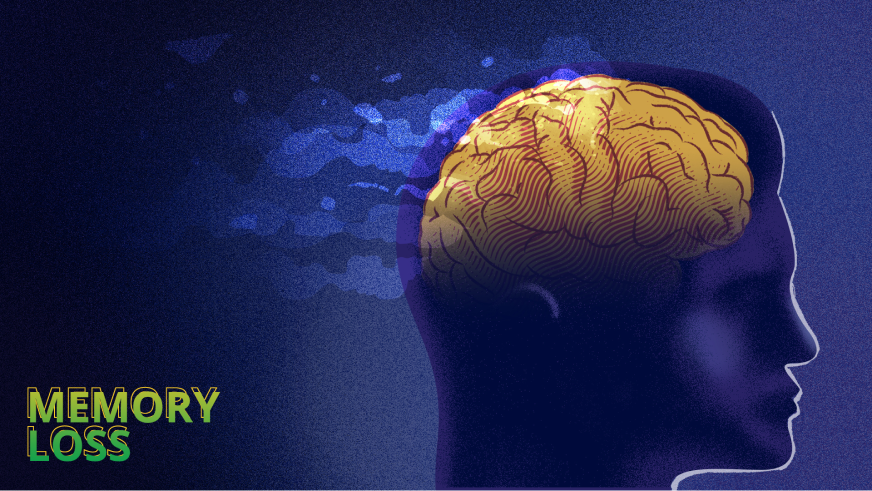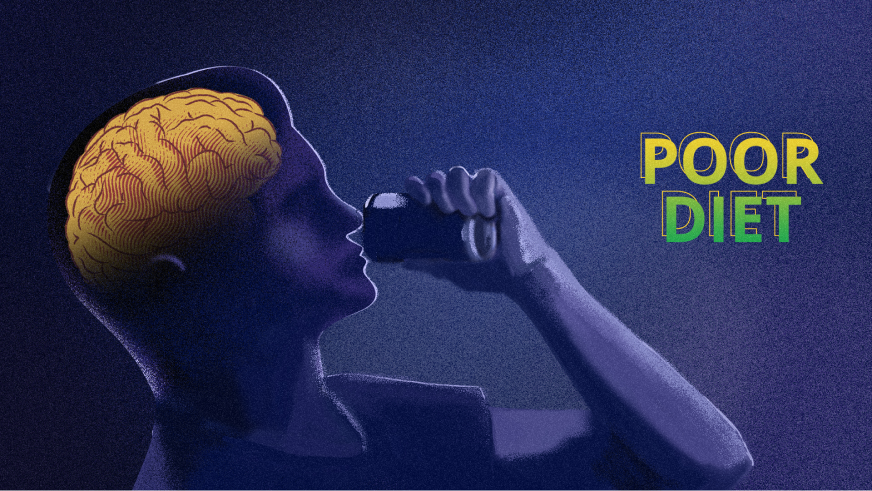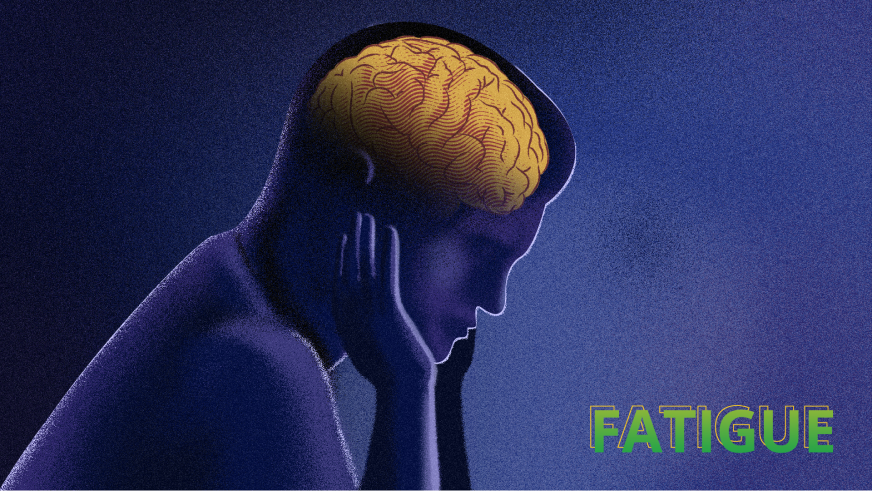Health & Wellness
Sauna and Cold Plunge Routine: Unlock Health, Recovery, and Longevity
5 min read
Do you ever feel like you are sleepwalking through life? Do you have trouble focusing or concentrating? Do you feel like you can’t think clearly? What about forgetting something important? If you answered yes to one or more of these questions, you have symptoms of brain fog.
Brain fog is the inability to have a sharp memory or to lack a sharp focus. You just really feel like you’re not yourself and you’re unable to think clearly. That can encompass a lot of different medical conditions and issues.
This is the definitive guide on brain fog research. In this comprehensive guide, we cover:
Table of content
If you want to get rid of brain fog, you’ll love this guide. We have done in depth research with actionable steps for you to alleviate brain fog.
Let’s get started.
Brain fog is not a medical condition, but it is a collection of symptoms such as lack of mental clarity, confusion, and an inability to focus. It is very important to recognize that brain fog is a symptom, and not a condition nor a disorder.
According to WebMD “Brain fog isn’t a medical condition. It’s a term used for certain symptoms that can affect your ability to think. You may feel confused or disorganized or find it hard to focus or put your thoughts into words."
Another way to describe brain fog is mental fatigue. If you feel foggy, unfocused, and like you just can’t think, your brain is sending a signal that there’s an imbalance in your life that needs to be addressed. There are so many causes of brain fog, so you must be patient in pursuit of finding your own cause. Once the root cause is discovered, adjustments in lifestyle, diet, medications, and stress management can help lift brain fog and restore clarity, focus, and energy.

Since there are many causes of brain fog, brain fog can be very common. Looking at some natural causes, brain fog can be caused by a poor night’s sleep. A lack of sleep and rest can activate your brain fog causing a loss of mental focus and clarity. Stress, another common cause, is a huge part of people’s lives. Therefore, if you’re under stress, there is a high probability that you have experienced brain fog. Since your diet can play a role in brain fog, it is likely that you have come across situations where your brain fog has activated due to inflammation through your diet. Additionally, if you are taking any medications, or have depression, anxiety, or may be pregnant, these could be a common factor in causing your brain fog.Overall, brain fog is extremely common and experienced by many due to these lifestyle factors, and medical conditions.
Everyone experiences a different set of symptoms when they have brain fog. However, brain fog produces plenty of signs to alert you that something is not quite right. There are plenty of ways to tell if it’s something you’re experiencing. Here are some examples that can help you identify brain fog symptoms:
A symptom that occurs in both major and minor cases, misunderstanding is often followed by indecision, uncertainty or a feeling of ambiguity. Brain fog can make a person feel as though the thought, understanding, and remembering processes don't work as they should. It may affect your: memory, including information storage and retrieval.
Lack of focus can take several forms but where a momentary pause happens, it is important to take notice. It is common to zone in and out every so often. Beware that frequent drifts may suggest a more persistent problem. Concentration difficulties for most people are a normal and frequent occurrence. Concentration problems may be caused by fatigue and emotional stress. Hormonal changes, like menopause or pregnancy, can influence the way we think and focus.
Fatigued when you wake up, exhausted by lunchtime, and completely drained when the evening rolls around? A worn-out mind quickly saps your entire body's energy levels, and fighting to keep the fog at bay can make it even worse. It can cause you to feel overwhelmed and emotionally drained, making it impossible to overcome your responsibilities and problems. Feelings of detachment, apathy and all kinds of personal and working life can become devastating.
Another way brain fog robs you of sleep is via the increased anxiety that it can bring about. Anxiety causes us to toss and turn or can leave us unable to fall asleep promptly. Finally, if your recall is suffering or your mind is constantly fighting for clarity, it can lead to a brain that is always on, trying to find its way through the haziness, even when it’s actually time for bed.
We all forget things. It's part of how our brain works: New, more relevant information replaces older, less vital data. It’s when we're unable to maintain a hold on the important stuff that brain fog could be the culprit.
When you get tired or worn out, your mood will worsen, which leads to higher instances of irritability. Beyond the added stress this places on you, not to mention the fact that irritability further drains your energy, frequent mood swings negatively impact personal and professional relationships. These mood swings can be brought about by hormonal changes or other medical conditions, which can also lead to brain fog leading to a vicious cycle that must be interrupted.
Being mindful of symptoms is just one step in understanding brain fog. Another vital means of self-care involves recognizing what influences brain fog and the factors that can cloud your mind. However, the question you should seek to answer isn’t whether or not you have brain fog, but what is causing it.

If there's one truth about brain fog, It's that there is no one thing that's going to make you have it. In the year 2020, students and professionals are living a fast-paced, plugged-in, and on-edge lifestyle. When you are living that type of fast paced lifestyle it’s very important that you understand your mind and body. Essentially brain fog is a sign of few key things such as nutrient deficiency, sleep disorder, energy depletion, chronic stress, or being inactive. Let’s dive in further and look at each one. You may find your brain fog cause here.
Stress can cause havoc in your body. From a clinical standpoint, your brain relies on a delicate balance of hormones called cortisol, dopamine, and serotonin to help you maintain a clear head. When cortisol, which is the body's stress hormone and helps to maintain your alertness, is produced in excess, it lessens your ability to control your mood or effectively handle fear or maintain proper motivation. Ultimately, this clouds your mind and your judgment leading to brain fog.
People are finally coming around to realize how important sleep is towards your mind and body's overall wellness. Individuals who suffer from sleep apnea (which limits vital oxygen from reaching the brain) or insomnia are at risk when it comes to developing symptoms of brain fog. As the poor sleep persists, every day becomes a battle to find a clear mind -- you wake up in a daze, and that hazy feeling, along with your lowered energy levels, is a constant throughout your days.
Eating the wrong foods will significantly reduce your brain's ability to function correctly. There are quite a few culprits. These include sugar, processed food, and refined carbs. These cause inflammation, which ultimately ends up causing imbalance and deregulations, casting a daze in your brain. Other foods known to contribute to brain fog are those associated with food allergies. These include nuts and nut-based products, dairy, gluten, and foods with MSG.
Women who are pregnant often experience what is, at times, referred to as "baby brain." During pregnancy, a woman's hormone levels change dramatically. For many expectant mothers, this can result in problems with short-term memory or a struggle with absentmindedness. Baby brain highlights the very real changes that can occur in hormone levels, turning a sharp-minded individual into someone that is forgetful or has problems maintaining their focus. Women also experience foggy brain during periods, when lower estrogen levels can bring about symptoms of brain fog. As far as men go, they can suffer mental haziness if their testosterone levels drop, especially as they get older.
Fibromyalgia or chronic fatigue syndrome is often associated with daily fogginess and fatigue. Other conditions where brain fog may develop include autoimmune disorders like arthritis, lupus, or multiple sclerosis. As far as medications that most commonly create cloudy brain function:
The three main ingredients that your brain needs are water, food, and oxygen. 73% of your brain is water, and depriving it is going to cause major brain fog. For those who enjoy consuming alcohol, you know how it feels after a night out. The headache, the fogginess, all due to dehydration. Replenish your body with water as much as you can, throughout the day to avoid brain fog.
Blood flow to your brain is critical in avoiding brain fog. One way to ensure it's flowing is through regular exercise. Regular exercise, even if it's just a brisk daily walk, will get the blood flowing throughout your body, and most importantly, to your brain. This helps improve your cognitive abilities, such as your ability to learn, think, reason, and remember.

At this point you should now have a clear understanding of what is brain fog, what are the symptoms of brain fog and what causes brain fog. Now it's time to deep dive and learn about the best cures for brain fog so you can start thinking with a clear head again.
Most of the brain fog fixes are pretty simple. The first step in the process is that you need to first find ways to reduce your stress, start eating more healthy nutritional food, and of course, exercise regularly and get a good night sleep. The hardest part is actually implementing these changes in your life so that you can be healthy and have a clear mind.
Starting today here are 5 ways you can start treating bring fog:
Sometimes brain fog is caused by fatigue so it's very important to start getting good night sleep. It's recommended to aim between 7 and 9 hours of sleep each night.
The best way to clear your mind is simply by moving your body. There are many benefits that are associated with exercising. American Academy of Neurology, published a study on January 30, 2019 finding that "exercise may improve thinking skills in people as young as 20." Simply add a 10 minute walk, a quick jog, or a short run into your lifestyle and that should help you with your brain fog.

Anxiety and stress can contribute towards brain fog and mental fatigue. It's very important for you to understand how to take care of yourself without burning out. Try meditation, deep breathing or create some healthy self-care routine for yourself so you can improve your mental health and with that the bring fog will be treated. If you think anxiety is the main cause of your mental fatigue, find out how to overcome anxiety brain fog?
It's very important to understand how you are fueling your body on a daily basis. First thing to do is to start a food log and pay attention to what happens when you eat certain foods. The goal here is to really focus on feeding your mind, body and brain to ensure it's getting proper nutrition. Example foods: salmon, walnuts and pecans, avocado, extra virgin olive oil, and coconut oil.
Keep yourself hydrated. Drink water with electrolytes when you feel thirsty. Pay attention and maybe see how the brain feels when you cut out caffeine and alcohol. You should check this detailed article on brain fog cures to learn how you can practically implement them in your life.

If you are reading this at work right now and fighting brain fog you need an instant solution that will fix your brain fog right away. Here are some for your review:
1. Give up the clutter: Clutter is bad for your mind and health. Take a look at your desk and start cleaning up and get organized.
2. Multi-tasking: Commit to completing one task at a time. Research shows that switching tasks actually burns more calories and fatigues your brain – reducing your overall capacity for productivity.
3. Stop consuming media: Limit your media consumption. Ask, Is this benefitting my life in any way?
4. Don’t sit still: Are you sitting all day at work? Sitting still all day, every day, is dangerous. Starting today you need to add a 10min walk into your routine every 2 hours. The brain is often described as being “like a muscle”. It needs to be exercised for better performance.

Brain fog can be one of the most challenging parts of living with a chronic illness, but if you struggle with it, just know you are not alone. it is very important to explore things one by one. Keep your lifestyle as consistent as possible and change one variable (diet, sleep, medications, etc) and see how you feel. It could take weeks sometimes to see the effect of these changes (diet changes, medications) so take your time exploring possibilities. Continue to live your life as best as you can, don't let this stop you from pursuing what you want and trying to live your life to the fullest.

Monitor your caffeine intake for peak energy and wellness.

Track your daily sugar intake and stay within healthy limits.

Analyze your meals and ensure balanced nutrition for a healthier lifestyle.

Evaluate your sleep needs to optimize rest and overall well-being.

Discover your daily water needs to stay hydrated and energized.

Assess your hydration levels and keep your body refreshed all day.

Find your target heart rate for effective workouts and fitness progress.

Track calories burned during activities and monitor your fitness goals.

Quickly check your Body Mass Index and health category for better wellness.